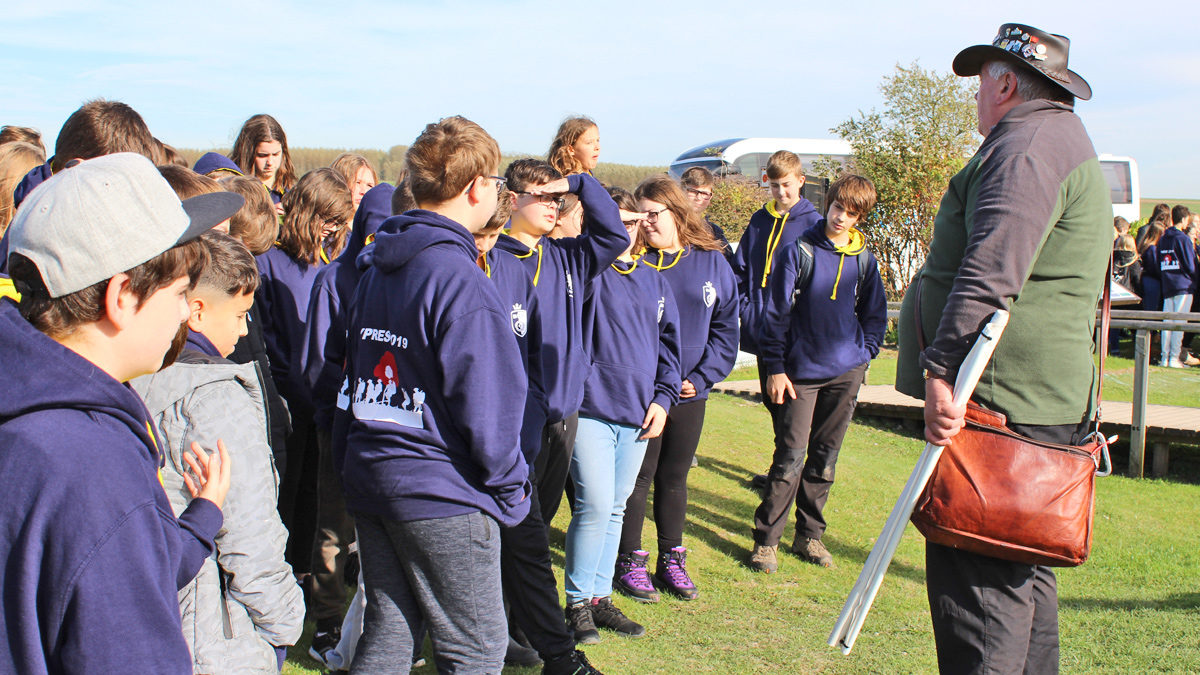
WW1 – Bringing the events of war to life. Helping students step into the story…
Richard Broadhead, History Tour Guide, Rayburn Tours – Tell us more?
Last updated: Aug 21st, 2024

Richard Broadhead, History Tour Guide, Rayburn Tours – Tell us more?
I’ve been lucky enough to be accompanying schools and their students and guiding them around the battlefields for the last 10 years. The primary aim of my role as History Tour Guide is to engage students in history and bring the events of war to life. I, as do all guides, want the trip we are accompanying to be as engaging and memorable as possible. We play a pivotal role in bringing history to life, and helping students step into the story.
From the teacher’s perspective, I aim to offer any support I can, reducing stress levels, and allowing them to immerse themselves in the wider trip experience. My role is to work in partnership with them to deliver a rich educational experience for their students.
A History Guide will know the battlefields, historical sites and visits like the back of their hand. You can’t underestimate the value of this. It allows the teacher to concentrate on the students and follow the depth of historical context and information the guide will share. It’s an extremely hands-on learning experience for all.
I have heard many teachers speak of their own ability to lead a tour, but that having a guide is a great addition, complements their role, and relieves any unnecessary stress!
When it comes to any changes in the History curriculum, a History Tour Guide is also in the unique situation, to lean on their in-depth knowledge of the battlefields, to work with our expert Tour Co-ordinators to plan an itinerary that incorporates many of the visits and places featured in exam board literature. In this scenario, the trip takes on an extremely active role in developing classroom learning.
There are many sites and museums in both France and Belgium covering the First World War and though many have similar exhibits, it’s good to know that some offer something unique that will inspire and engage students in the events of the First World War. It’s those experiences that make the biggest difference to a tour.
A good example near Ypres in Belgium is Hooge Crater Museum. Here they have built a set of replica trenches where groups can enjoy exclusive, using the space as a trench classroom where they learn about barbed wire, trench construction and trench life from both an allied and German point of view. It’s hands-on experiences like these that help students digest the reality of what they are seeing.
When venturing into the museum, students will explore a medical area which can be used exclusively for those studying First World War Medicine, assisting them greatly in understanding the Medicine Through Time curriculum.
Likewise, on the Somme Avril Williams has an excavated trench and a cellar that was used as a medical facility during the First World War and a well-stocked museum and study area where the same exclusivity can be offered to school groups. Visiting here can be a great benefit when learning about the conflict.
Fewer distractions lead to increased engagement for the students. Because these activities take place in a dedicated learning area, it means students are more focussed and teachers can be confident that they are gaining the absolute most out of their time here.
To a student a cemetery can initially seem uninspiring, so I find it important to have several activities led by the students, where a small group of them will have to find a particular grave, not a small task when there are 11,000 burials. The small group will have background information on the casualty, and then they will tell the story to the rest of their tour group.
As a History Tour Guide, I always look at the ethnic and religious makeup of the group before travelling and make sure there is relevance to the group. I will always remember being with a group at Bedford House Cemetery, and a Muslim student asked where he could find the graves of Muslims who had served in the war. I replied, ‘just over there’ and as we approached the grave, I asked him to translate the Muslim script on their headstones. He was both happy and proud to do so for the group.
Visiting a Large memorial with over 50,000 names of missing soldiers can be quite overwhelming for students. They often wonder around the monument looking for their own last name. This is a natural instinct.
I devised a simple exercise with cards and a picture of a casualty and their story on the reverse. Each student is given a card and is tasked with finding the person on the memorial. We then gather together, and some students tell the stories of what happened to their casualty.
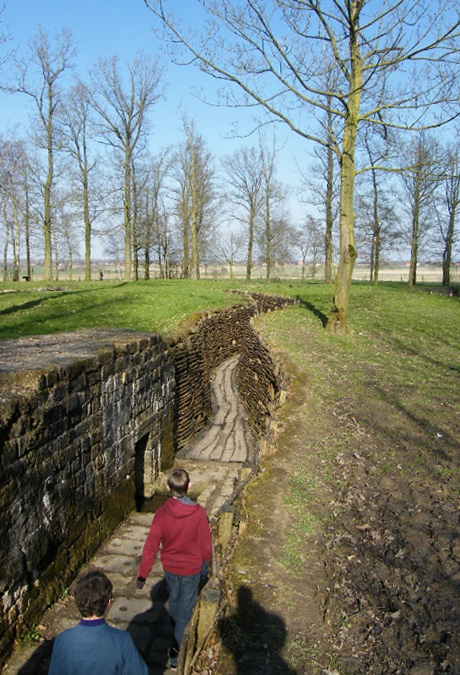
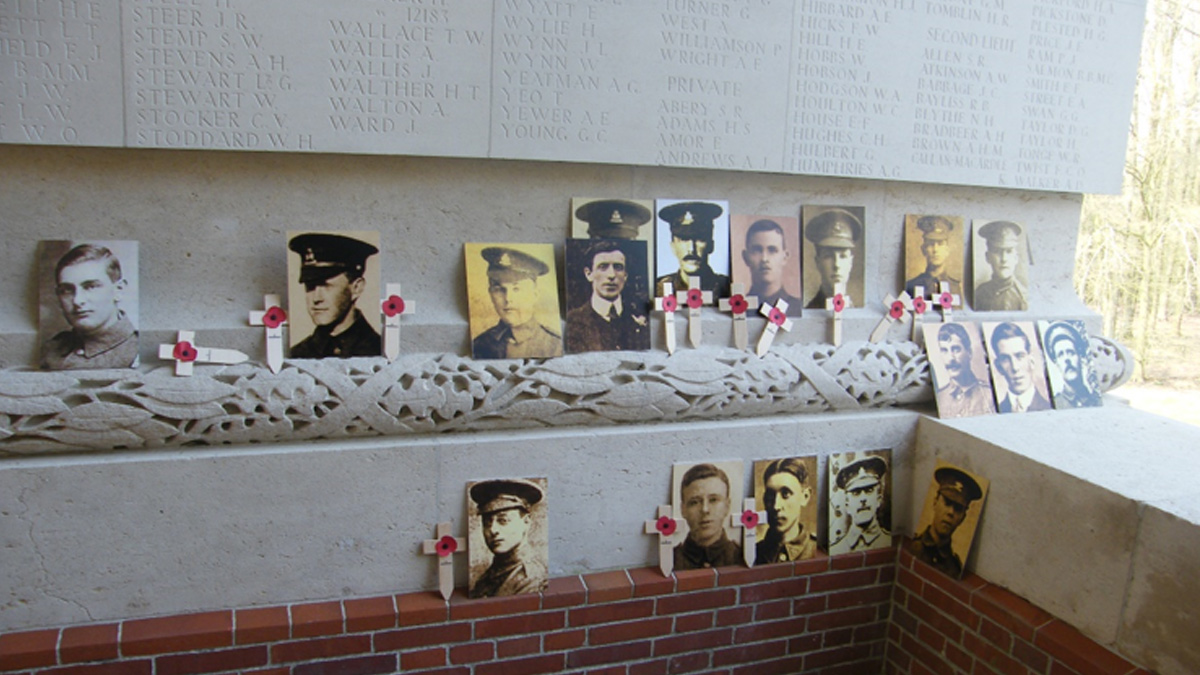
War Walks are a great way to explain the battlefield to the students, but the battlefield needs to be put in context, and I always carry a number of large maps to explain where we are and the context every time we reach a new site. This is a great time for a guide to encourage active participation in a Q&A session.
Often on tour a student will have a relative who is buried in a particular cemetery, if possible, a good history tour guide will always make time and plan an additional stop. I have been told many times by students that they are the first person in their family to visit their relative’s grave. This presents an extremely poignant moment on tour for all.
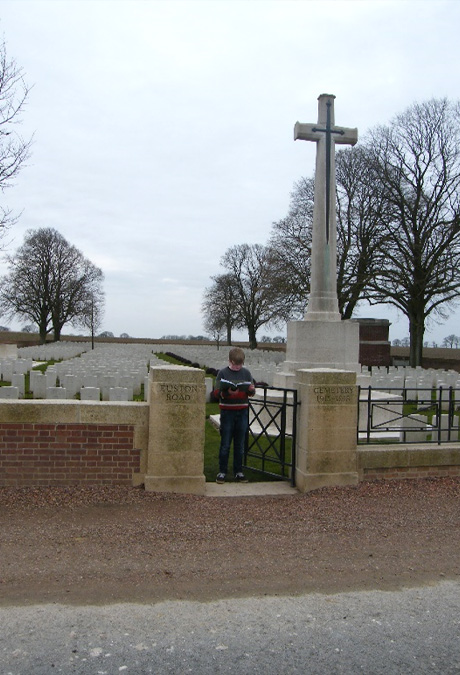
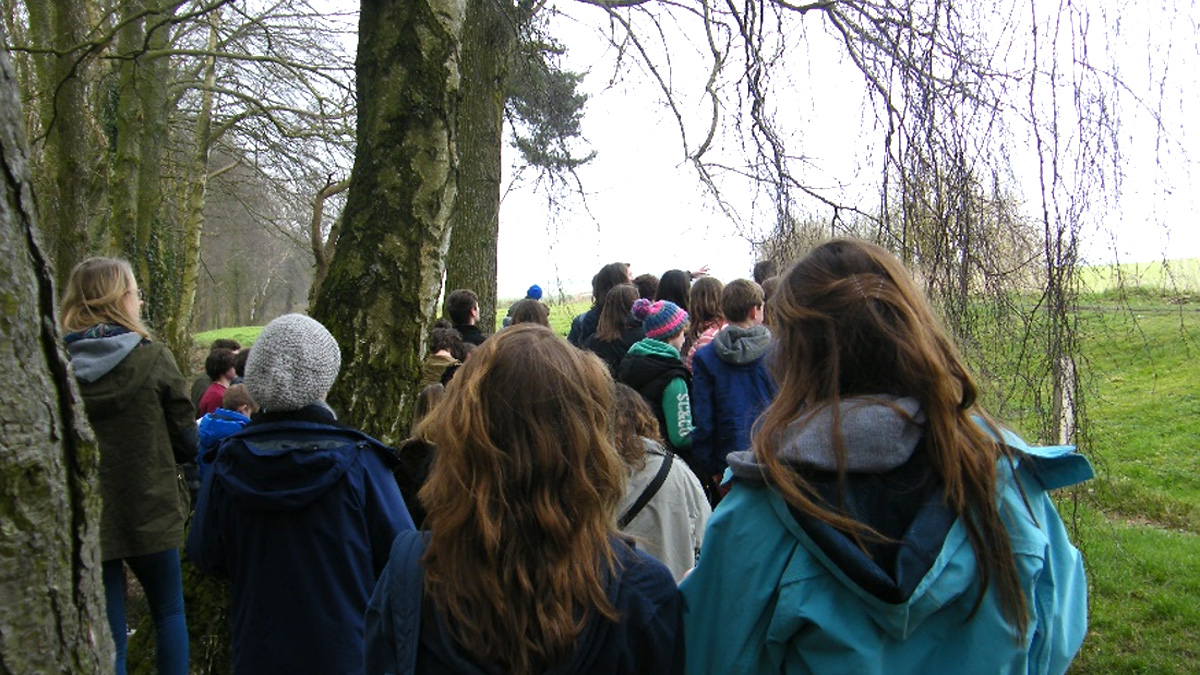
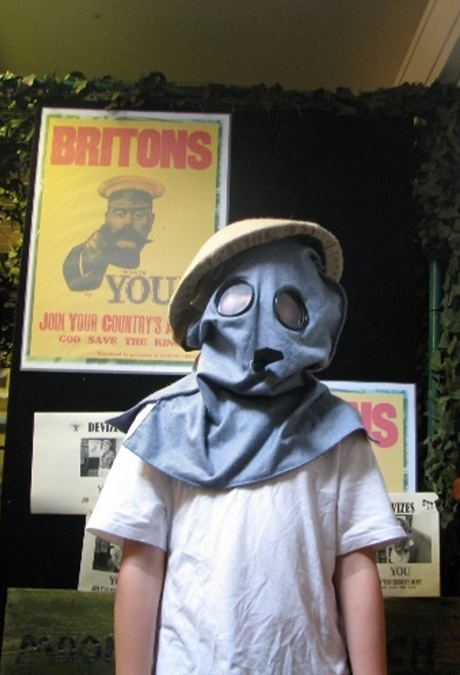
Different guides bring different knowledge with them. I personally have written seven books about the First World War and have a good in-depth knowledge of the Somme and Ypres, which are the areas usually chosen for school history tours. My personal knowledge extends far beyond these areas from Nieuport, Belgium to Verdun and the eastern, France, covering Fromelles, Neuve Chapelle, Aubers Ridge, Vimy, Arras, Amiens, Villers Bretonneux, Cambrai, St. Quentin, Chemin Des Dames Argonne Forest. Studying the conflict from not just the British and Commonwealth side but the French, Belgium, German and even the American Contribution.
At home, I have what can only be described as a small museum which helps me explain more about the weapons and equipment used by all sides during the conflict, the treatment of wounded and how men lived and endured the trench warfare.
Gas was extensively used during the First World War, and I always carry a set of replica gas masks and present the different types used during the conflict. This is always of huge interest to the students.
1. A Guide will be going to France and Belgium regularly and will have up-to-date knowledge of potential challenges on tour– for example, road closures and changes to border checks. This knowledge is key to the smooth running of a tour.
2. The Guide will have numerous local contacts which can be worth their weight in gold.
3. Safety management and risk assessment are crucial on a school tour, and a history tour guide becomes a real confidence booster for the staff team. They are experienced at reducing and eliminating risk.
4. As a guide, I am always aware of risks and ensure staff and students are well briefed. The First World War battlefields are a wonderful place to visit, however they do have a unique danger which can be regularly encountered. Unexploded ammunition of all sizes litters the battlefield and may look harmless after 100 years, but much of the munitions have failed to detonate and are waiting to be collected by specialist teams. This is not something to fear, but certainly for a group to be aware and mindful of.
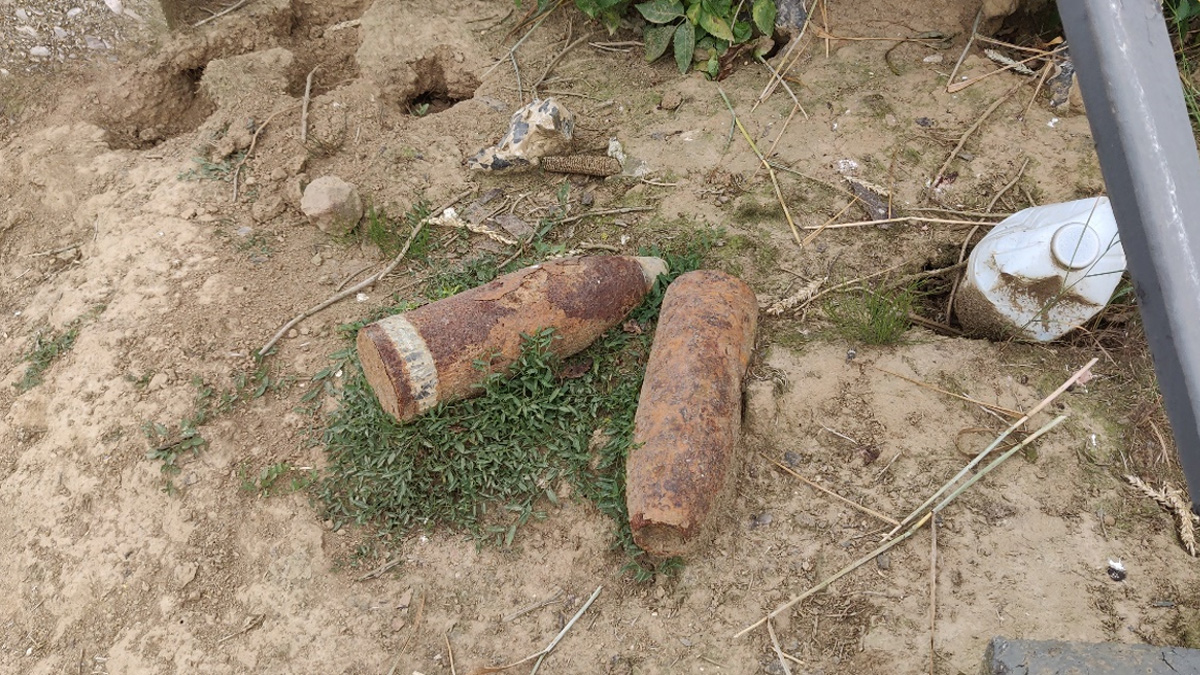
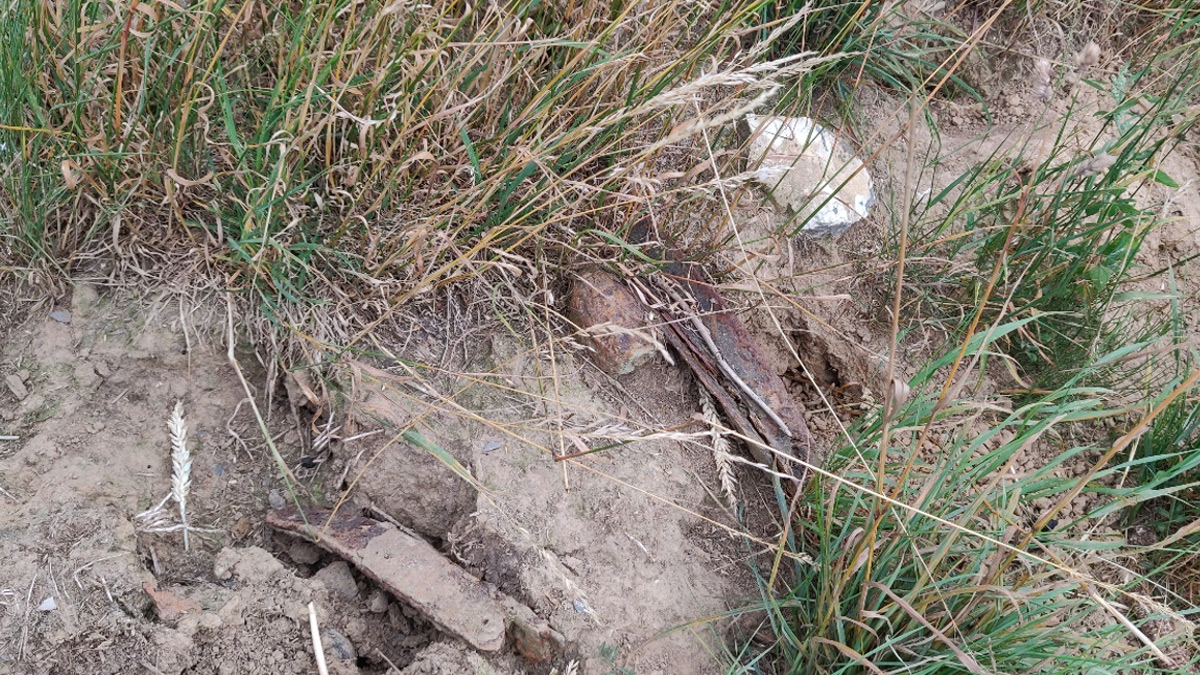
5. Toilets – You never know when your group are going to need toilets on a tour and the guide will always have a comprehensive knowledge of them – sounds a small issue but when you get stuck in a jam and your itinerary is slipping this knowledge can be a ‘game changer’.
6. Remember that the guide is a professional and has probably been doing guiding for a long period of time – their experience and depth of knowledge can bring extra magic to the tour. Students will sometimes react better learning from someone other than their teacher. A guide becomes somebody new and different, who they can form a positive relationship with.
7. Many schools attend the extremely busy and well attended service at the Menin Gate. I always ensure that the group arrive at a time that gives them a good place to view the proceedings and good access for any students laying a wreath. IT can be daunting for them having to walk out in front of a large crowd, but I know the Menin Gate Volunteers well, and they work with me to give all groups a special experience.
8. There are many other elements and relationships on tour that make for the smooth running of an itinerary. That’s why I go out of my way to main good relationships and open lines of communication with hoteliers and coach drivers. This is vital in supporting the party leader and students.
I love meeting every group I travel with. I enjoy hearing the positive feedback from them following my involvement in their tour. I take immense pride in engaging students in history and helping students step into the story…
Richard Broadhead
Start talking to our specialist teams on 01332 347 828 or explore our website and be inspired by our range of History Trip destinations!
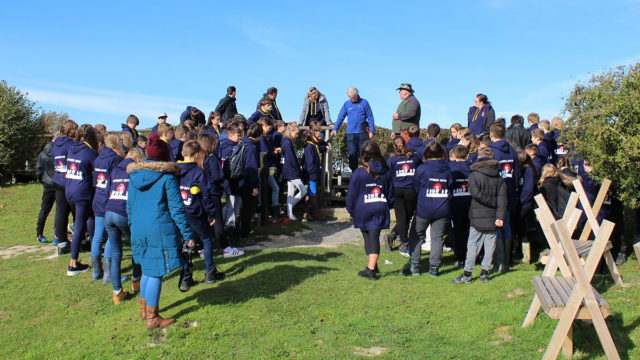
Rewind two years and Brighton Hill Community School embarked on their truly memorable history trip to the Belgian battlefields. Accompanied by two Rayburn History Tour…
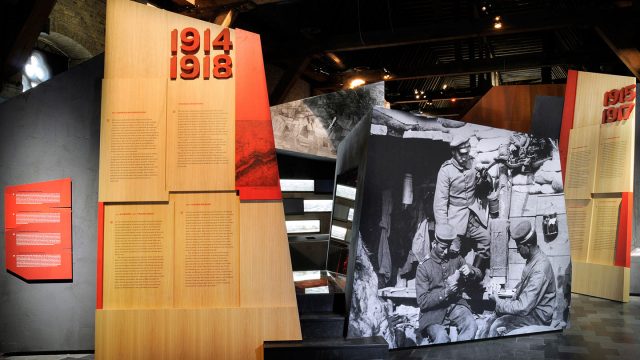
Take a look at some of the excursions available on the Western Front, from museums to memorials and the profound impact on life with the…
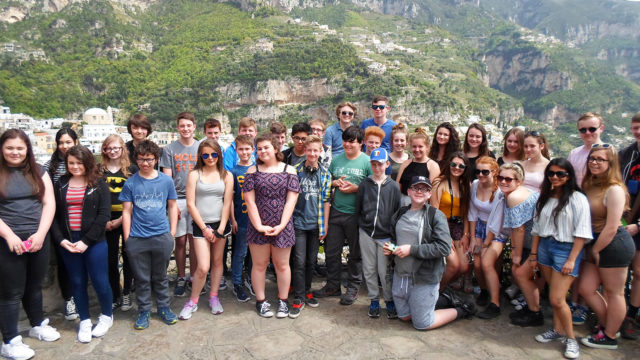
We believe that fun, enriching, educational school trips can go a long way to healing past wounds and creating unforgettable experiences and memories.